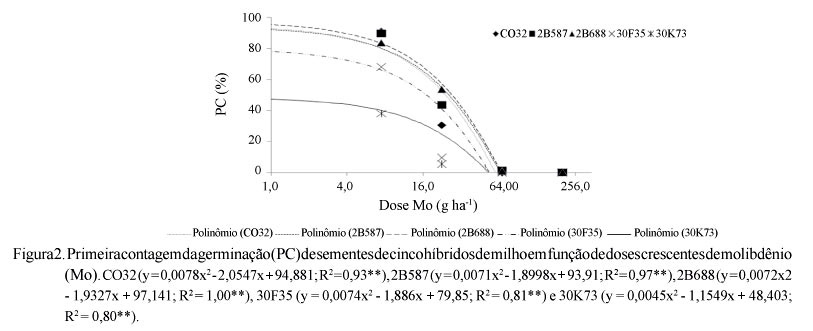Seed treatment with micronutrients, such as molybdenum, ensures a greater uniformity of application. The amount of this element to be applied to seeds must be sufficient for crop development and production. The objective of the present study was to evaluate the physiological quality of corn seeds treated with molybdenum. Seed quality was evaluated by determining the water content, and from the germination test, the first count test and primary root emission. The treatments consisted of five hybrids (DOW CO32; DOW 2B587; DOW 2B688; Pioneer 30F35 and Pioneer 30K73) and five levels of molybdenum applied to the seeds (0; 7.5; 22.5; 67.5; 202.5 g ha-1 of molybdenum). The source of molydenum was sodium molybdate dyhidrate (39% of molybdenum) and the application was made by mixing with the liquid suspension of a carboxim+thiram fungicide on the seeds. The physiological quality of the corn seeds is adversely affected by increasing levels of molybdenum. The DOW 2B587 corn hybrid gave the best response to the application of the highest level of molybdenum compared to the other genotypes studied.
sodium molybdate; saline effect; hybrids







